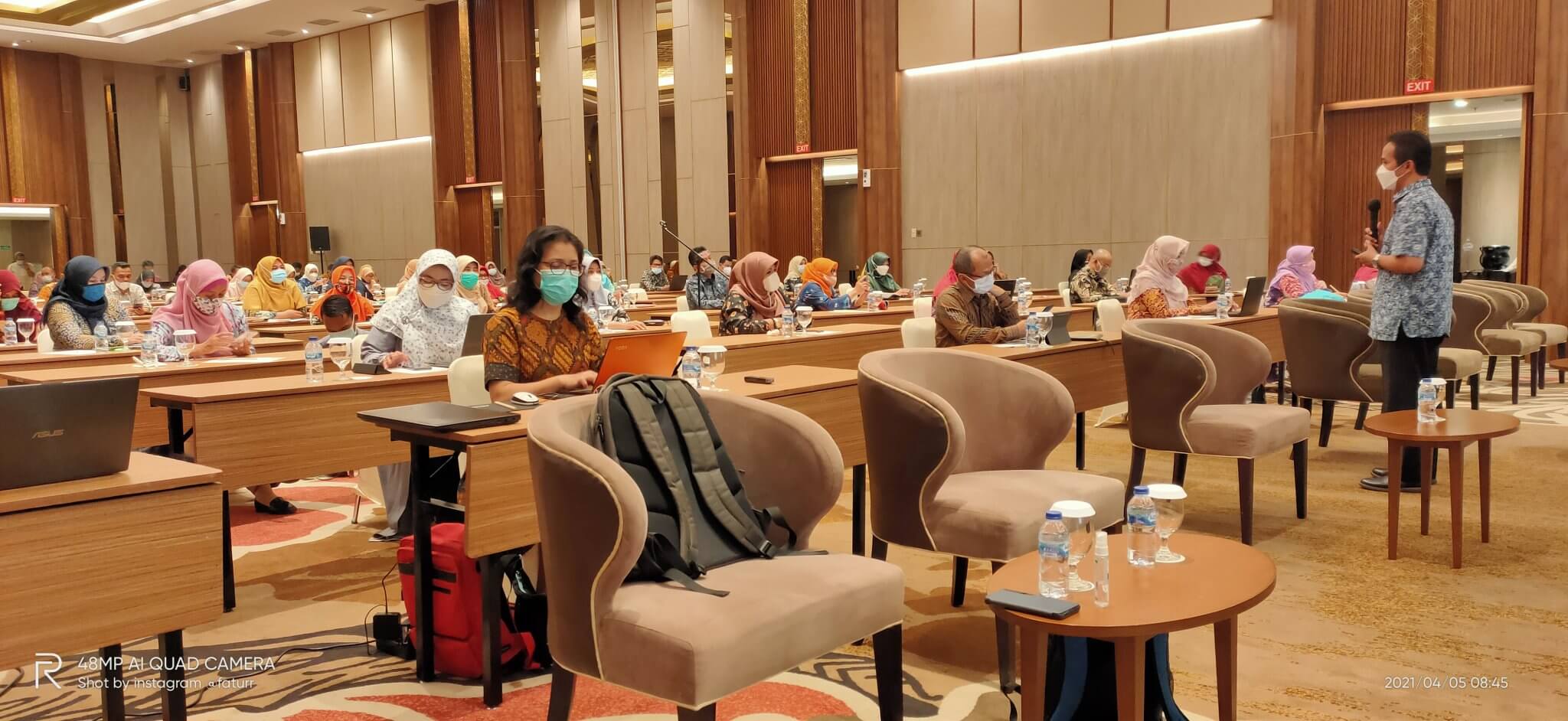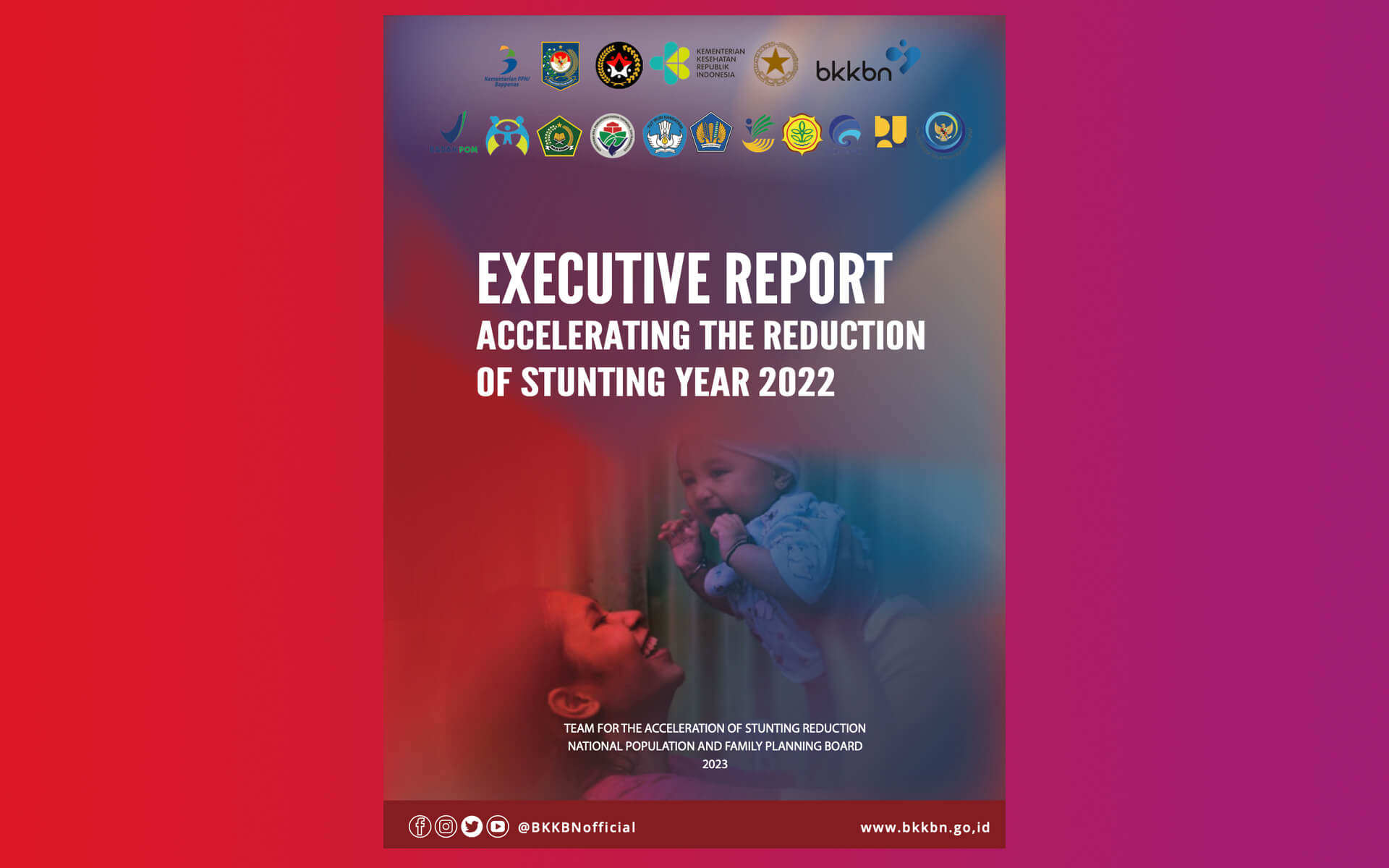
The National Strategy for the Acceleration of Stunting Prevention (Stranas Stunting) states that Early Childhood Education (ECED) is one of the interventions for preventing stunting, particularly in increasing awareness, commitment, and parenting practices about nutrition for mothers and children. Investments in early childhood education, especially for 0-2 years, will develop the child’s intelligence which will support their physical growth. When children grow up, they not only need good nutritional intake, but also stimulation for brain and motoric development, thus children’ optimum growth and prevent them from stunting. It should be noted that the prevalence of stunting increases along with increasing age of the child. So, it is important to educate parents and children about the importance of nutritional intake, parenting, and good sanitation behavior as early as possible.
Since 2019, the Ministry of Education and Culture (MOEAC) has included a nutrition menu in the ECED teacher training module. Furthermore, the MOEAC has trained 3,692 ECED teacher trainers and has conducted ECED teacher training in nutrition sensitive villages, in 20 districts/municipalities out of 200 priority districts/municipalities.
When the pandemic hit Indonesia on March 2020, the training was directed to be online. In order to ensure that training can be done properly, the MOEAC is conducting pilot training for ECED teachers in several districts/municipalities: Purbalingga, Cianjur, Bandung, Penajam Paser Utara, and Lombok Utara. This program is supported by the Secretariat of the Vice President and Program Development and Quality of Early Childhood Education and Community Education (PP PAUD Dikmas) West Java and Central Java. These pilots were held on March 2021.
During April 5-7, 2021, the MOEAC held a Workshop on the Evaluation of the Implementation of an Online Early Childhood Teacher Training Pilot Project in Palembang, South Sumatra. This activity is a part of processes series for strengthening the quality of early childhood teachers through the Early Childhood Teacher Training Program with Nutrition Sensitive Materials (prevention of stunting).
“ECED is important for stunting reduction, because if they are involved in early childhood education, these children can be monitored periodically. The participation rate ratio in ECED is still too low, this is a challenge,” Deputy for Human Development and Equality, Secretariat of the Vice President, Suprayoga Hadi said.
Suprayoga added that ECED is part of a priority intervention to reduce stunting. ECED is also a representative of synergy between stakeholders, the business community, society, universities and professional organizations, development partners, and media.
In the opening ceremony of the workshop, several participants and resource persons conveyed their impressions of the online training. An ECED training resource person from Cianjur District, Ine Rahaju, revealed that the training was especially useful and encouraged collaborative work between participants, the organizing committee, and training resource persons. However, it is hoped that the participants involved can more understand about information technology (IT).
Meanwhile, a training participant from North Lombok District, Siti Mariam expressed her appreciation because this activity could provide insights for ECED teachers. However, there are still technological barriers in taking part the online trainings. “I live in the mountains, so the signal is very difficult. We have to try hard to be able to participate in this activity (virtually),” Siti Mariam said.
As a supporter of the implementation of pilots in districts/municipalities, Edi Suswantoro from Program Development and Quality of Early Childhood Education and Community Education (PP PAUD Dikmas) West Java explained that he had tried to find solutions to signal problems in remote areas. “The signal is beyond our control, even though it has been anticipated – for example, by joining a training session together instead of individually. However, the results of the pre and post-tests generally show an increase in knowledge, so this training is still extremely useful,” Edi explained.
Coordinator of the Working Group for Transformation and Leadership, the MOEAC, Pujiarto said that the support for facilities and infrastructure (especially quotas) should be a concern, because it requires a lot of funds. In addition, the duration of training must also be considered so that training can be more effective. He added that the implementation of online training needs to be continued. “It is amazing to know from participants, resource persons, and organizers. It can be concluded that it is feasible to be continued. After the pilot is completed, it is hoped that it can be implemented in all districts/municipalities,” Pujiarto said.
A similar opinion was also conveyed by Suprayoga. He said that the online training can be continued although it still needs improvement. “Thank you for being the pioneer examples because everyone can show that it needs to be continued, improved, completed, and so on. Various matters need to be followed up, so that the planned improvements can be done at the targeted time. Generic and specific constraints must be resolved,” Suprayoga said.
Suprayoga also emphasized the need for a plan of trainers to train, including their targets. It needs to be done so it can be included in the budget preparation in Development Plan Forum (Musrenbang) and become a program that will be implemented soon.




